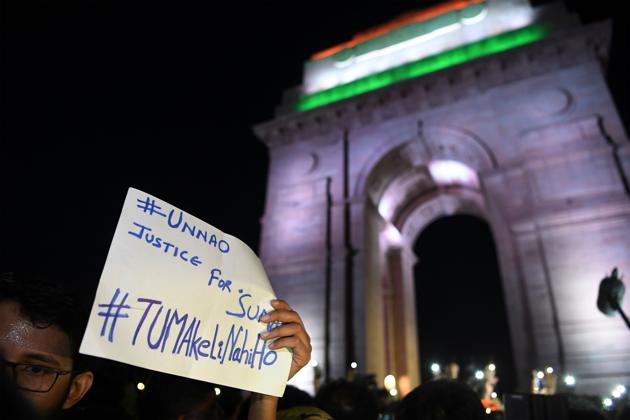It is time to rethink India’s witness testimony process
Pay more attention to ensure that the initial statements made by persons can be later used as evidence in court
The most recent tragedy in the Unnao rape case, leading to deaths of key witnesses in the upcoming trial due to a road accident, and placing the victim herself in intensive care, has led to renewed criticisms of many features of India’s criminal justice system. Particular attention has been paid to the apparent lapse on the part of State agencies in ensuring the safety of the deceased witnesses. And because of this, we are witnessing a rehash of the confused debates surrounding witness protection schemes in India.

Facts first. In December 2018, the Supreme Court, while hearing a PIL filed by witnesses involved in the Asaram Bapu rape case, approved a witness protection scheme floated by central agencies and directed the Centre and states to implement this. We are in August, and it is still unclear whether all states have done so; in all likelihood, they haven’t. Even if that scheme is notified by all states, it suffers from the myopic vision of all top-down reform agendas, and reflects a surprising indifference to the social milieu within which it hopes to operate.
Perhaps the most fatal flaw the programme suffers from is that it expects the same police forces, which we routinely criticise as being understaffed to handle investigative work, to devote adequate resources to offer round-the-clock protection required to ensure the safety of witnesses.
Rather than create new schemes, which will be executed on the basis of imaginary resources, our ailing criminal justice system will benefit from processes that are in tune with our reality. This reality shows a system operating on shoestring budgets, with not enough police personnel to investigate or judges to hold trials, and where ordinary cases are plagued by delays, leading witnesses to forget what happened. Our poor statistics on convictions reflect this combination of factors, and not merely because witnesses turn hostile because of undue pressure.
These problems have been a part of India’s legal fabric since Independence, with the first witness protection programmes being mooted by the law commission in 1958. Perhaps, after trying for decades to make this system work, with the occasional tinkering (even if it might be in the guise of an entirely new criminal procedure code), maybe it is time to start reconsidering the first principles.
Let’s start with our position on witnesses, and their role in the process. It is well-known that criminal cases first involve police investigations, where persons are questioned, to help figure out what happened. These persons, then, become witnesses in the trial that happens later. Thus, a witness ends up recording statements at multiple places. Is the value of the statements made at these different stages the same? This question leads us to an important feature of the legal system, where the law on paper differs materially from the law in practice.
On paper, the statements made to police officers are supposed to be disregarded as evidence because our legal system distrusts the police as a source of evidence. But in practice, since it can take years before a witness ends up going to court, these initial statements assume critical importance in helping revive a witness’ memory, and ensure that there is something to be said in court. Depending on which side of the debate you are on, the rule discounting the evidentiary value of statements to police officers is either an essential feature or a colonial hangover.
But what both sides will agree upon is that the quality of any witness statement is bound to be better when it is made at a time closer to the incident, rather than several years later. These difficulties for witnesses to properly remember what happened, and the problems this causes in the criminal justice system, were the focal point of the Serial podcast that became such a phenomenon a few years ago.
So, rather than focussing on witness protection to ensure that we can get a person to come and make a statement in court, why don’t we pay critical attention to ensuring that the initial statements made by persons can be secured in a way that allows them to be useful in evidence? A way to do this would be to use the existing procedure for judges to record initial statements as the norm, and not a tool used only for exceptional cases.
Besides making it easier for judges to have cogent evidence even if witnesses buckle under pressure later on, the added legal significant of this method is that such statements can be used in evidence even if the person is unavailable due to death, or other unknown reasons. So, perhaps it can act as a deterrent to the malevolent forces at play in sensitive cases. These suggestions are hardly revolutionary, and echo calls made by other persons and in various courts. But maybe it is time to start giving them a more serious thought.






